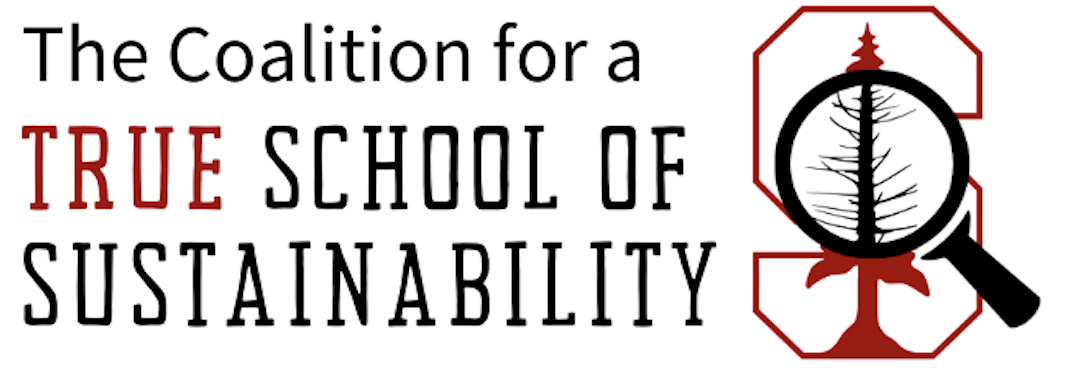Exxon goes mask-off (click image to watch advertisement)
Falsifiability is a precondition for a hypothesis or theory to be scientific. At Stanford, the notion that fossil fuel companies can and will be partners in the energy transition, if only they are given a “seat at the table,” has been unfortunately impervious to contradictory evidence for decades. Indeed, even after an ExxonMobil strategist openly admitted to denying science, funding front groups, and advocating for a carbon tax solely because the company believed such a tax would never pass, Stanford hosted ExxonMobil’s CEO, Darren Woods, at its bi-annual “Global Energy Forum” (alongside several other fossil fuel executives and Senator Joe Manchin). Many Stanford faculty who presumably care about climate change attended and spoke, thus legitimizing Woods’ disinformation campaign.
Hope that further evidence of fossil fuel companies’ true intentions may chip away at the credulity entrenched among many at Stanford may seem naïve — as naïve as believing that fossil fuel companies would fund research that would hasten the world’s transition off their core products.
But some cracks in the dogma may be showing, as we discuss below. So, perhaps naïvely, we’re sharing a recent ExxonMobil advertisement against electric cars (click image above to watch the video; produced by ExxonMobil’s subsidiary Mobil 1). May the cracks widen.
After watching the video, please ask yourself: is this a company who should be funding our research, sending its executives to speak at our events, and recruiting our students? Let’s not be fossil fools.
Are people waking up?
This week, Christiana Figueres, former Executive Secretary of the United Nations Framework Convention on Climate Change (UNFCCC) wrote:
“More than most members of the climate community, I have for years held space for the oil and gas industry to finally wake up and stand up to its critical responsibility in history.
“I have done so because I was convinced the global economy could not be decarbonised without their constructive participation and I was therefore willing to support the transformation of their business model.
“But what the industry is doing with its unprecedented profits over the past 12 months has changed my mind.”
Better late than never, perhaps. Journalist Amy Westervelt shares her thoughts on Figueres’ piece and what accountability should look like for people who have enabled the fossil fuel industry during these critical decades and who are only now waking up.

